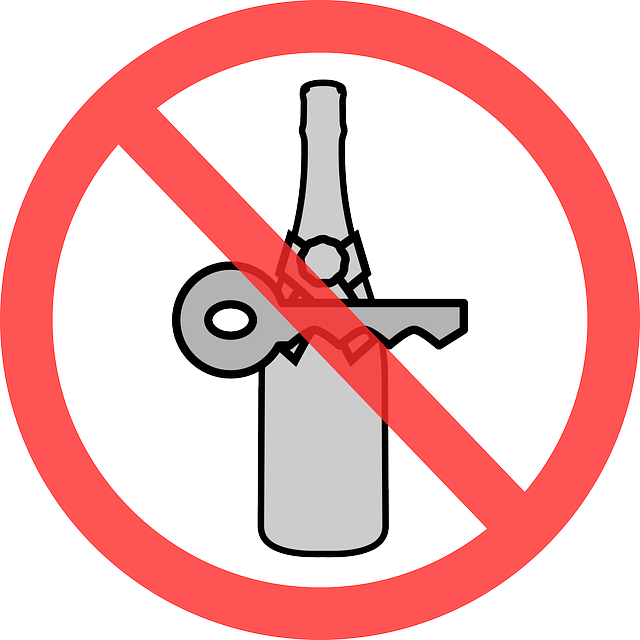Mental Health and Impaired Driving are interconnected, with untreated mental conditions leading to risky behaviors like DUI. Alternative sentencing options focusing on support and treatment, such as counseling, therapy, and community services, can help individuals recover while reducing recidivism and ensuring public safety. By distinguishing between traditional and alternative sentences, these programs address underlying mental health issues, promote rehabilitation, and aim for positive long-term outcomes. Expanding access to these mental health-focused alternative sentencing programs across jurisdictions through partnerships and technology integration can further enhance accessibility and contribute to safer communities by reducing impaired driving.
In the intricate intersection of mental health and impaired driving, innovative approaches are reshaping justice systems. This article explores alternative sentencing options for DUI (driving under the influence) offenses, delving into their effectiveness in addressing the unique challenges posed by individuals struggling with mental health issues. By examining traditional versus alternative methods, benefits, and future directions, we aim to illuminate a path towards more compassionate and transformative solutions for both offenders and communities at large.
- Understanding Mental Health and Impaired Driving
- Traditional vs. Alternative Sentencing Options
- Benefits of Alternative Sentencing Programs
- Implementation and Future Directions for Mental Health Focused DUI Alternatives
Understanding Mental Health and Impaired Driving

Mental Health and Impaired Driving go hand in hand, as underlying mental health conditions can often lead to impaired judgment and decision-making, resulting in risky behaviors like driving under the influence (DUI). It’s crucial to recognize that individuals with untreated mental health issues may be more susceptible to making poor choices when facing stress or challenging situations. This is where alternative sentencing options for DUI come into play, offering a chance for individualized support and treatment rather than solely focusing on punishment.
Understanding the connection between mental health and impaired driving can lead to more effective prevention strategies. By addressing the root causes and providing appropriate resources, we can help individuals make better choices and reduce recidivism rates. Alternative sentencing programs that incorporate counseling, therapy, and community support services can empower those with mental health struggles to recover and regain control over their lives while also ensuring public safety on the roads.
Traditional vs. Alternative Sentencing Options

In addressing Mental Health and Impaired Driving, it’s crucial to distinguish between traditional and alternative sentencing options. Traditional approaches often involve strict penalties, including jail time and fines, which may not adequately address the underlying issues faced by individuals with mental health challenges. These conventional sentences can exacerbate existing problems, particularly when individuals struggle with substance abuse or psychiatric disorders.
Alternative sentencing methods, on the other hand, offer more personalized and restorative solutions. Options such as diversion programs, community service, intensive supervision, and treatment-based approaches prioritize public safety while focusing on rehabilitation. By providing support services and treating the root causes of impaired driving related to mental health, these alternatives aim to break the cycle of addiction and recidivism, fostering long-term positive outcomes for both individuals and communities.
Benefits of Alternative Sentencing Programs

Alternative sentencing programs for DUI (Driving Under the Influence) offer a promising approach to addressing the complex issue of impaired driving, especially in considering the intersection of mental health and impaired driving. These innovative initiatives provide an opportunity to move beyond traditional penalties, which often fall short in managing both the criminal behavior and underlying conditions.
One of the key benefits lies in their potential to improve public safety by focusing on rehabilitation and support services. By offering alternatives like counseling, community service, or specialized mental health treatment, these programs aim to reduce recidivism rates. This approach not only helps individuals struggling with substance abuse or mental health issues but also ensures that they receive tailored assistance, fostering a more sustainable recovery process and potentially lowering the risk of future DUI offenses.
Implementation and Future Directions for Mental Health Focused DUI Alternatives

The implementation of mental health-focused alternative sentencing options for DUI (Impaired Driving Under the Influence) cases is a promising development in the field of criminal justice reform. These programs recognize that underlying mental health issues often play a significant role in impaired driving, providing an opportunity to address the root cause rather than solely focusing on punishment. By offering specialized treatment and support services, such as counseling, therapy, and peer support groups, these alternatives aim to reduce recidivism rates and promote long-term recovery for individuals struggling with mental health challenges while behind the wheel.
Looking ahead, the future of mental health-focused DUI alternatives lies in expanding access to these programs across different jurisdictions. This can be achieved through partnerships between law enforcement agencies, mental health professionals, and community organizations. Additionally, integrating technology for remote counseling sessions and online support groups could enhance accessibility, especially in rural or underserved areas. Such innovations not only ensure that individuals with mental health issues receive the help they need but also contribute to safer communities by reducing the overall impact of impaired driving.
Alternative sentencing options for mental health-focused DUI cases offer a promising approach to address the complex issue of impaired driving. By providing tailored support and treatment, these programs can effectively reduce recidivism rates while considering the unique challenges faced by individuals with mental health disorders. Implementation of such initiatives should be encouraged, as they hold significant potential to revolutionize DUI justice, foster better outcomes, and promote public safety in a more compassionate manner. This shift towards holistic solutions recognizing the intersection of mental health and impaired driving is an essential step forward.






